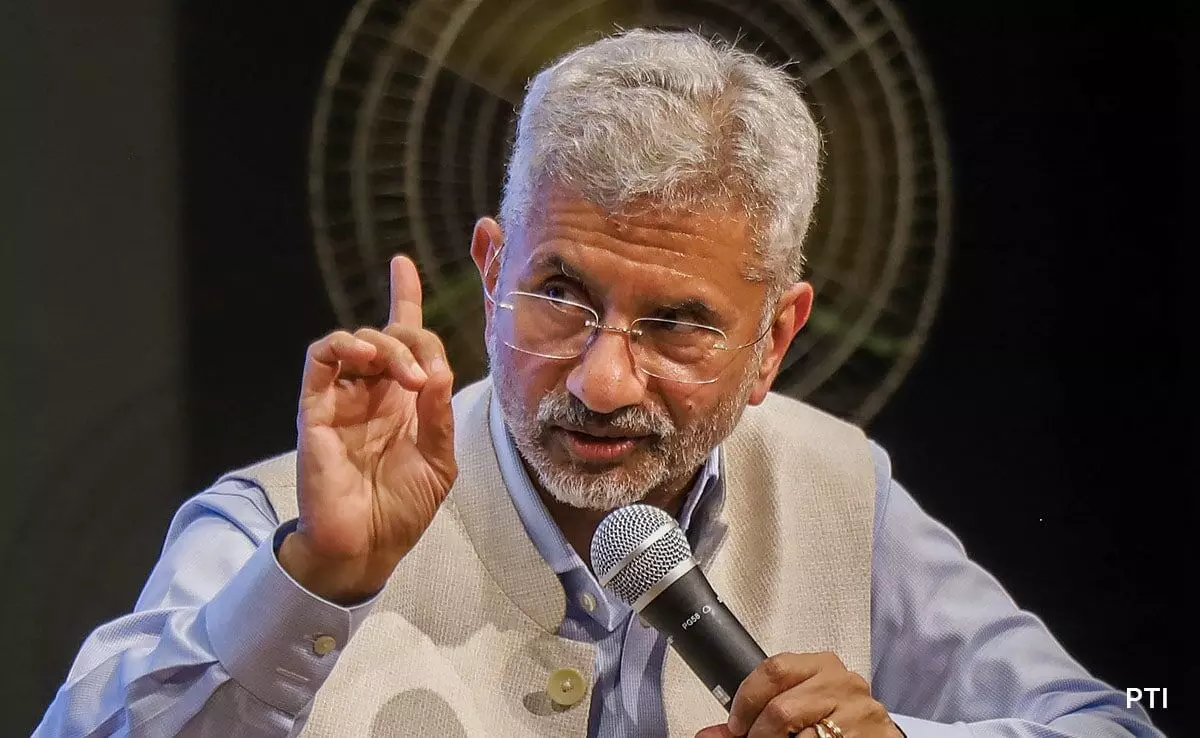Jaishankar Credits Indian Military for Forcing Pakistan to Agree to Ceasefire

External Affairs Minister S. Jaishankar has firmly credited India’s military action—not foreign intervention—for bringing about the recent ceasefire with Pakistan.
In an interview with German newspaper Frankfurter Allgemeine Zeitung, Jaishankar dismissed suggestions that the United States was responsible for de-escalating tensions between India and Pakistan. When asked whether the world should thank the US for brokering the ceasefire, he replied, “The cessation of firing was agreed between the military commanders of both sides through direct contact. The morning before, we effectively hit and incapacitated Pakistan's main airbases and air defence system. So, who should I thank for the cessation of hostilities? I thank the Indian military because it was the Indian military action that made Pakistan say: We are ready to stop.”
The ceasefire came after three days of high-stakes military exchanges that began on May 7, when India launched airstrikes against terror camps in Pakistan and Pakistan-Occupied Kashmir in retaliation for the deadly Pahalgam terror attack, which killed 26 civilians. India’s Operation Sindoor specifically targeted terror infrastructure, but Pakistan retaliated by launching hundreds of drones at Indian civilian and military sites. In response, India struck back, inflicting heavy damage on Pakistani military installations.
Following this intense exchange, Pakistan’s military reached out to Indian counterparts, resulting in a ceasefire agreement on May 10.
While both Islamabad and the Trump administration have claimed that US diplomacy played a role in defusing the crisis, New Delhi maintains that America’s role was limited to expressing concern.
"We act in national interest"
In the same interview, Jaishankar also discussed India's strategic approach on the global stage. While acknowledging the United States’ influence in world affairs, he emphasised India’s independent decision-making.
“America is still the most powerful country in the world. Therefore, every other country must constantly observe how the Americans approach the world and world affairs,” he said. However, he added that shifts in American foreign policy are not a new challenge for India. “It’s not a new situation for us. We have never had the comfort and continuity that was enjoyed in Europe. Europe had long decades of growth, progress and stability after 1945—even during the Cold War. Only now is that changing. Things were different for us,” he said.
Jaishankar stressed that India has always operated in a complex environment and has learned to make decisions grounded in its national interest. “We had to operate in a difficult environment and had to struggle with it. We have done well and have learned to always make decisions in the interests of our national interests and security. We do everything necessary to achieve this,” he said.
India’s message in this latest conflict and its diplomatic positioning remains clear: it will act decisively in defence of its security—and on its own terms.
